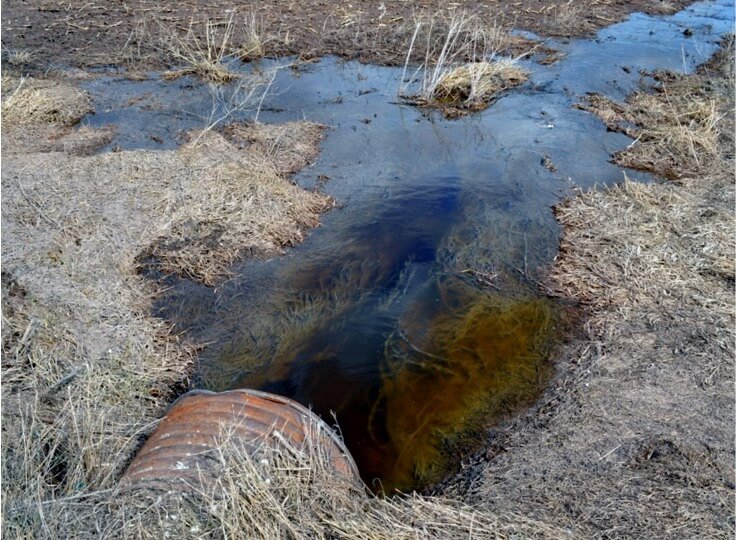Share
Many Suffer So A Few Can Prosper
By Lisa Brown-Ramsey
Five years ago, Dade County Missouri was a good place to call home. The air was fresh, the water was clean, and you could listen to the sounds of nature. We enjoyed the simple life. You could wade in the creek on a hot day, your livestock could drink from the pond, and you could have get-togethers outside. Or, you could simply relax after a long day in your backyard.
Dade County was considered a great place to raise your children, or simply enjoy rural life. Now, we have large poultry barns. Everything that was enjoyable no longer exists. We lose sleep to the incessant high-pitched hum of grain dryers running day and night. We live next to the spreading or overspreading of waste. These operations are supposed to submit a nutrient management plan in order to receive an operating permit from the Department of Natural Resources and adhere to it. But the DNR is no help at all, and the rules have become so relaxed that these operations are able to do anything they want, legally.
When the stink finally dies down from the last spreading of waste, there are flies and other pests. The water stinks, the soil stinks, and the stench lingers in the air. You wonder about diseases; about possible long-term and short term effects to human health, animal health, and the environment. Then you get to wondering how soon the next round is coming, because it is.
Runoff after snow storms goes directly into the stream that runs the length of our property.
This is not the normal stink of manure. It is a debilitating fog that makes you gag and causes your eyes to water. It makes it hard to breathe, and most times, this is accompanied by bouts of diarrhea. That’s if you are healthy. Many people have medical conditions that make inhaling this dust from waste life-threatening. It is not simply manure; there are chunks of rotting flesh from improperly decomposed dead loss. Sometimes there are whole carcasses.
Area residents not only have their lives turned upside down in order for these facilities to operate, they absorb extra costs. Either the air conditioning or heat has to be on at all times since windows have to stay closed, which drives up utility rates. We can’t hang clothes on the line to dry, so we have to use the dryer for each load. There is no cooking or spending any time outdoors that isn’t completely necessary. There are times when we have to leave our homes sometimes for days.
When this happens, and we finally come home, we are greeted by more upheaval. We come home to the burden of investing more time and money to clean carpets, drapes and furniture. We have to wash every piece of clothing and throw away groceries. We even throw away toothbrushes and toothpaste because every personal item has absorbed the stench.
Some of us cannot leave home. We have livestock who do not have the option of leaving. They must breathe the stench and live or die from it. There are many reasons that force us to remain at home with the disgusting odor and pollution.
Dade County Missouri has an ordinance (2007-100) that is supposed to protect its residents from many of the negative effects from these operations. This ordinance is supposed to be enforced by our county commissioners. But there’s a problem here: the county commissioners’ salaries are based solely on assessments (property value, real and personal). As soon as one of these multi-million dollar facilities goes up, the assessment increases the commissioner’s salary for the following year.
We’ve had commissioners tell us we just have to live with it. They can dump waste right in your front yard if they want to. There is nothing we can do about it, and the interests of the citizens are clearly not a priority for our local representatives.
The choice is clear: our county commissioners can choose to enforce the ordinance protecting the residents who elected them, or they insure comfortable increases in salary for themselves by encouraging these facilities to proliferate by changing the ordinance to favor the facilities.
County commissioners have reduced fees and lengthened the life of permits (Ordinance Amendment 13-03). They’ve issued permits despite protests from the community. The facilities are not being built in the commissioners’ backyards. They do not have to suffer the negative effects of these operations.
This unnamed stream flows within a few feet of at least two wells and residences. It feeds into the Sac River. The Sac River feeds into Stockton Lake, and Stockton Lake feeds Fellows Lake. Fellows Lake supplies drinking water to Springfield, MO.

